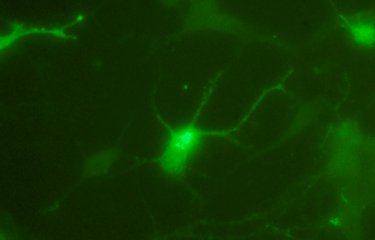The new PREDEMICS* project strives to improve current knowledge on certain emerging infectious diseases and develop effective treatment and prevention resources. The European Union will be financing this project to the tune of €11.7 million over a five year period. Coordinated by the Institut Pasteur, this collaborative program unites 17 European research and public health institutions. The project targets the study of four viruses originating in animal reservoirs that have a high potential for human transmission in Europe.
Press release
Paris, febuary 14, 2012
Given the various epidemics that have emerged within the last fifteen years, such as West Nile virus, SARS, or the H1N1 influenza virus, public authorities are being pushed to find solutions and tools to anticipate the outbreak and spread of these new "emerging" diseases. The goal is to thwart the effects on global public health as soon as, or even before, the first cases are reported. This however requires prior understanding of factors related to the emergence and spread of the pathogens involved in these diseases.
This is where PREDEMICS comes in. The project will study a selection of four representative viruses with high potential for crossing the species barrier: influenza viruses, Hepatitis E virus, Japanese encephalitis virus and related flaviviruses (such as those responsible for West Nile fever), as well as lyssaviruses, especially those resulting in rabies. These RNA viruses have been chosen due to the way in which they are transmitted, i.e. via air-borne, enteric, or vector transmission—which may or may not include transmission via arthropods (mosquitoes).
“The research teams are focusing on one major objective: to understand the complex mechanisms governing interactions between the virus and its host. Determining the major steps in the emergence of a disease will help us identify what prevention strategies to implement," explains Sylvie van der Werf, program coordinator and head of the Molecular Genetics of RNA Viruses Unit and the National Influenza Center at the Institut Pasteur. This research strives to determine the risk factors relating to the viruses (evolution, diversity of virus population, genetic analysis, etc.), the environment (presence of wastewater, capacity for persistence in the environment, etc.), and the host. These are factors that could lead to a virus crossing the species barrier and spreading, possibly triggering a rapid worldwide outbreak of the disease (pandemic). The project also includes studies on biological virus/host interactions responsible for viral adaptation and on immune responses developed within the host.
Data will be compiled in a database available to the international scientific community. There analysis will help experts predict the evolution of disease in potential at-risk environments.
PREDEMICS also includes a teaching platform geared towards scientists and students.
The platform, or “Isabel Minguez Tudela-Training Program” includes various training activities including e-learning. It aims at promoting exchange of ideas, information and staff through a transdisciplinary approach. It will foster links with international organizations such as FAO, OIE and WHO, opinion leaders and leading universities in Europe. On top of its scientific objectives, the program also hopes to raise awareness about the problems related to disease outbreaks and their consequences.
The European Community will finance up to €11.7 million for this program over a five year period. It unites veterinary and public health researchers from 17 European research and public health institutes.
* Preparedness, Prediction and Prevention of Emerging Zoonotic Viruses with Pandemic Potential using Multidisciplinary Approaches
Partners
Institut Pasteur, Paris, France
Istituto Zooprofilattico Sperimentale delle Venezie (IZSVe), Italy
Katholieke Universiteit Leuven (K.U.Leuven), Belgium
Université de la Méditerranée Aix-Marseille (UNIVMED), France
Institute of Virology and Immunoprophylaxis (FDEA-IVI), Switzerland
Imperial College London, United Kingdom
Agence nationale de sécurité sanitaire de l’alimentation, de l’environnement et du travail (ANSES), France
Max-Planck-Gesellschaft zur Förderung der Wissenschaften e.V. (MPG), Germany
Fundacio d'Ivestigacio Sanitaria de les illes Balears Ramon Llull (FISIB), Spain
University of Gothenburg, Department of Microbiology and Immunology (UGOT), Sweden
Philipps Universität Marburg (UNIMAR), Germany
Istituto Nazionale per le Malattie Infettive L. Spallanzani (INMI), Italy
The University of Edinburgh (UEDIN), United Kingdom
Fondazione Istituto per l'Interscambio Scientifico (ISI), Italy
Health Science eTraining Foundation (HSeT), Switzerland
Istituto Superiore di Sanità (ISS), Italy
Alma Mater Studiorum-Universita di Bologna (UNIBO), Italy
http://predemics.biomedtrain.eu/cms/
Contacts
Nadine Peyrolo / +33 (0)1 45 68 81 47
Sabine D'Andrea / +33 (0)1 44 38 92 17
presse@pasteur.fr




